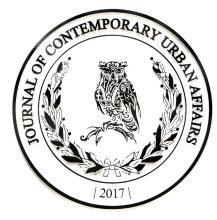Resource information
The following research is based on the affirmation that urban sustainability in developing regions such as Latin America is an impossible goal to be totally achieved due to the circumstances of poverty informality slums corruption violence among others that exist there Therefore urban sustainability in the cities of this region has to be reached through survival efforts that seek to balance the existing inequalities urban justice So the first step to take is to detect and measure those inequalities in order to be able to take actions to eradicate or decrease them The research presents five priority urban rights contextualized to the LatinAmerican spatiality called the LatinAmerican urban rights right to a living place right to the public space right to alterity right to mobility and accessibility and right to good governance practices and public policies that were obtained after analyzing urban and social characteristics in different cities such as Santiago Chile Salvador de Baha Brazil and Monterrey Mxico Finally the first proposal of operationalization of the LatinAmerican urban rights is presented which was applied to a case study in the city of Monterrey Mxico in order to prove the efficiency of the model


